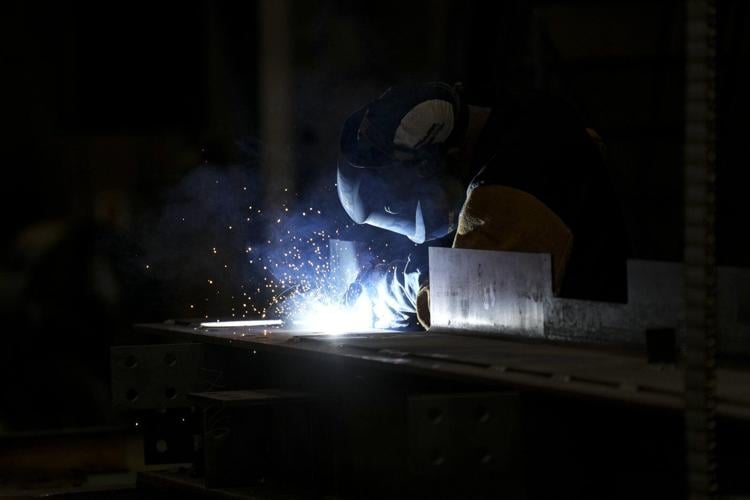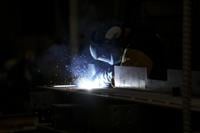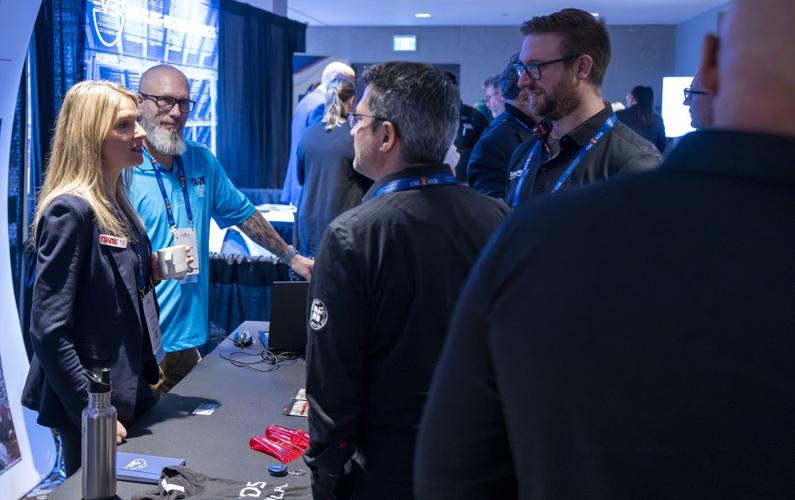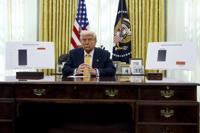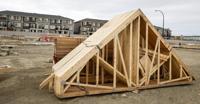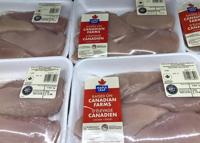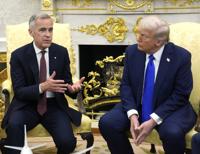MONTREAL - Zero-profit projects. Cancelled contracts. Halted development plans.
In a year that has gone from bad to worse, steel fabricators are now pinning their hopes on possible Buy ║┌┴Ž│į╣Ž═° provisions in the upcoming federal budget ŌĆö though such a shift would offer only limited protection from punishing U.S. tariffs.
At a conference in Montreal this week, makers of steel products ranging from beams to nuts and bolts said U.S. President Donald TrumpŌĆÖs 50 per cent levy on steel imports has already dented their finances.
ŌĆ£ItŌĆÖs really hard having a neighbour downstairs that is kind of going with his impulses,ŌĆØ said V├®ronique Roy, president of Logiciel Magnus, which sells software used in the design of steel structures.
Her clients are "losing contracts mostly from the United States," she said.
Keanin Loomis, who heads the ║┌┴Ž│į╣Ž═° Institute of Steel Construction, said he believes the federal government will mandate at least some Buy ║┌┴Ž│į╣Ž═° measures for public contracts in the Liberal budget next week.
ŌĆ£IŌĆÖm hopeful after the budget is handed down that weŌĆÖre going to have a significant change federally that then will also flow down into the provinces and then the municipalities,ŌĆØ Loomis said in an interview at a Montreal hotel.
Despite a push by the Liberal government for major infrastructure projects, the private sector accounts for the vast majority of spending on domestic steel. Meanwhile, suppliers at home also face the threat of being undercut by cheaper American imports and dumping of foreign steel into the ║┌┴Ž│į╣Ž═° market at artificially low prices. And they have few places to turn, said Loomis.
ŌĆ£ItŌĆÖs hard for us to imagine going to any other (foreign) market other than the U.S. because it's right thereŌĆØ ŌĆö steel is notoriously hard to haul cheaply over long distances due to its weight.
The impact of U.S. duties on steel and aluminum imports from across the globe, which doubled to 50 per cent in June, has hit unevenly across the country.
In Ontario, the steelmaking hubs of Hamilton and Sault Ste. Marie reeled after the tariffs reduced shipments and upended supply chains in the auto, construction and consumer goods sectors. In Quebec, steel fabricators ŌĆö who cut, weld and fit pre-made steel products churned out by big mills such as ArcelorMittal Dofasco and Algoma Steel ŌĆö rely heavily on work south of the border.
ŌĆ£The door has been shut for many of them,ŌĆØ said Loomis.
In Halifax, metal fabricator Marid Industries is shouldering the entire cost of the tariffs on projects that are already underway in the U.S., leaving zero profit, said CEO Tim Houtsma in an interview.
ŌĆ£WeŌĆÖve been super busy, but weŌĆÖre not going to make any money because that amount has to come out of our bottom line,ŌĆØ he said, noting the decision was a strategic one to maintain business relationships.
ŌĆ£Now our customers are hitting pause on projects,ŌĆØ added Houtsma, whose company employs 165 workers across the Atlantic provinces.
At the moment, layoffs are off the table. "But there's a lot of uncertainty, so we may end up being faced with that."
In July, Prime Minister Mark Carney announced tighter rules around steel imports in a bid to protect CanadaŌĆÖs domestic industry from dumping, on top of a 25 per cent tariff on American steel earlier this year.
Countries that have no free trade agreement with Canada ŌĆö China and India are among them ŌĆö now face quotas set at 50 per cent of their 2024 exports to Canada. States that do have a free trade deal enjoy quotas pegged at 100 per cent of their 2024 exports here. Canada currently has such deals with 51 countries.
The steel industry has long pointed to the dumping problem, with offshore imports climbing from 19 per cent of the ║┌┴Ž│į╣Ž═° market in 2014 to 39 per cent in 2022, according to the ║┌┴Ž│į╣Ž═° Steel Producers Association.
With many ║┌┴Ž│į╣Ž═° and overseas producers now effectively shut out of the U.S. market, more companies could be scrambling for business here.
"That production has got to find a home and a customer somewhere," said Houtsma, who suggested putting up further guardrails against a glut of foreign steel.
Some counselled restraint when dealing with both Trump and other partners.
Mike Green, a vice-president at Toronto-based Leland Industries, where 240 workers produce steel screws and bolts for products that include ║┌┴Ž│į╣Ž═° grain bins and American water tanks, said he generally opposes retaliatory tariffs.
"We've just all got to play nice in the sandbox and respect each other," said Green. He said Leland is sharing the cost burden of tariffs with U.S. clients.
The company's integration with the American economy underscored the challenges ahead for the industry at large. Leland's carbon steel wire ŌĆö its primary material ŌĆö comes from Canada, but some of its equipment and stainless steel stem from the U.S., as do many clients, he noted.
"That's partly why I'm a little reticent about tariffs going too far," Green said.
This report by ║┌┴Ž│į╣Ž═° was first published Oct. 29, 2025.

